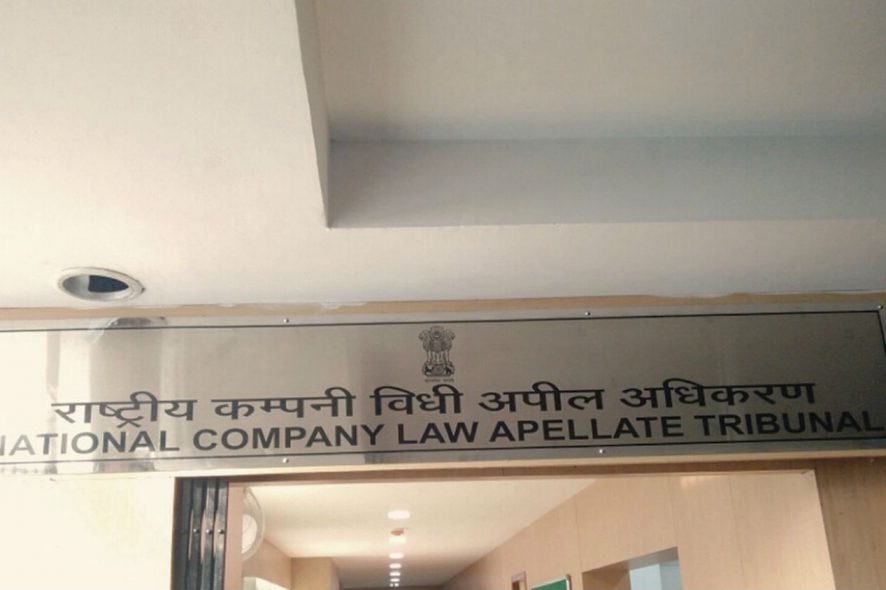National Company Law Appellate Tribunal (NCLAT): The Bench comprising of Justice S.J. Mukhopadhaya, Chairperson and Justice A.I.S Cheema, Member (Judicial) and Kanthi Narahari, Member (Technical) decided an appeal including the following question for consideration:
“Whether the Provident Fund, Pension Fund and Gratuity Fund come within the meaning of assets of ‘Corporate Debtor’ for distribution under Section 53 of the Insolvency and Bankruptcy Code, 2016?”
Following is the timeline in order to understand the issues pertaining to sections of Companies Act and Insolvency and Bankruptcy Code:
14th November, 2017-
Pursuant to an Application under Section 7 of Insolvency and Bankruptcy Code, 2016, the ‘Corporate Insolvency Resolution Process’ was initiated against ‘Corporate Debtor’.
20th September, 2018 –
National Company Law Tribunal, New Delhi passed a liquidation order stating that the workmen stood discharged under Section 33(7) of the Insolvency and Bankruptcy Code, 2016.
5th December, 2018 –
Liquidator, by email, denied payment of:
Gratuity Fund, Provident Fund and Pension Fund preferentially and included the same for the payments under ‘waterfall mechanism’ under Section 53 of the Insolvency and Bankruptcy Code, 2016.
January, 2019 –
‘Moser Baer Karamchari Union’ prayed that –
Directions be issued to the liquidator to exclude amount due to them towards:
- Provident Fund, Pension Fund and Gratuity Fund from ‘Waterfall Mechanism’ under Section 53 of I&B Code, 2016 as these will not constitute part of liquidation estate.
19th March, 2019 –
National Company Law Tribunal, New Delhi held that provident fund dues, pension fund dues and gratuity dues cannot be a part of Section 53 of the I&B Code. State Bank of India, a secured creditor, challenged the order in this present appeal.
Contentions as placed by the parties:
The counsel on behalf of the appellant stated that, for the purpose of ‘distribution of assets’ of ‘Corporate Debtor’ under Section 52 of I&B Code, 2016 – dues of employees as mentioned in sub-clause (c) of sub-section (1) includes the contribution of ‘Provident Fund’.
To suggest the view that, ‘workmen’s dues’ shall bear the same meaning as given under Section 326 of Companies Act, 2013, appellant placed reliance on the same. Further, it also stated that explanation (iv) below Section 326 of Companies Act, 2013 relating to ‘Overriding Preferential Payments’ and it is mentioned that sums due to any workman from any of the above-stated funds maintained by the company are covered under the term ‘Workmen’s dues’.
Reliance was also placed on Section 327 of the Companies Act, 2013 related to ‘Preferential Payments’.
Resolution Professional’s counsel submitted that Section 36(3) of I&B Code, 2016 defines the components of liquidation estate and lays down what forms the liquidation estate.
Therefore, it was submitted that, workmen have the first charge on the aforesaid funds.
Thus, while concluding in consideration of the issue as was stated earlier in this appeal, Section 36 (Liquidation Estate) and Section 53 (Distribution of Assets) were mentioned for understanding the relevance with the present case.
Tribunal stated that, Appellant cannot derive the meaning as assigned to it in Section 326 of the Companies Act, 2013 including the explanation below it.
It further added that, Section 326 of the Companies Act, 2013 provides ‘Overriding Preferential Payments’.
Explaining the difference between the distribution of assets and preference/ priority of workmen’s dues under Section 53(1)(b) of I&B Code, 2016 and Section 326(1)(a) of the Companies Act, 2013. Applying Section 53 of the I&B Code, Section 326 of the Companies Act, 2013 is relevant for the limited purpose of understanding ‘workmen’s dues’ which can be more than the provident fund, pension fund and gratuity fund kept aside and protected under Section 36(4)(iii).
Another point stated by the Tribunal was that, appellant for the purpose of determining workmen’s dues under Section 53(1)(b), cannot derive any advantage of Explanation (iv) of Section 326 of Companies Act, 2013.
Provisions of I&B Code have overriding effect in case of inconsistency in any other law for the time being enforced. Therefore, it is held that Section 53(1) (b) read with Section 36 (4) will have an overriding effect on Section 326(1) (a), including the Explanation (iv) mentioned below Section 326 of Companies Act, 2013.
The finding of the adjudicating authority, that the aforesaid funds do not come within the meaning of ‘liquidation estate’ for the purpose of distribution of assets under Section 53, Tribunal found no ground for interference with the impugned order of 19th March, 2019. [State Bank of India v. Moser Baer Karamchari Union, 2019 SCC OnLine NCLAT 447, decided on 19-08-2019]







